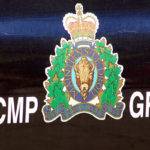Home »

Thank you to a particular Unknown Soldier
By Ian Cobb
The interior of the main street bar was dim and my eyes strained as I stepped into it. Aside from one other man and the bartender, the establishment was empty. Likely a normal thing, I deduced, as it was only just past noon.
We were in Cranbrook dealing with immigration issues (my ex-wife is American), and I found myself with some free time as the missus was grilled and fleeced of cash by government stooges.
Seeing neither a bookstore nor a music shop to capture my interests (this was 1991 and I didn’t know the city at all), I grabbed the book I was reading and headed for the first pub I saw; Shenanigans.
Once outfitted with a frothy cold glass of draft, I sat in a corner and began reading.
After a few moments of relaxing reading I became aware of a figure standing in front of me.
Not wanting to be bothered, I looked up sharply and asked with a pissy tone if I could help this person, who I noticed was quite an elderly gent.
“See you’re reading about Vimy,” the old guy said.
I was reading Pierre Burton’s Vimy, a book that I was re-reading as I was researching the great Canadian First World War victory.
“You interested in that sort of stuff?” The old guy asked.
I said I was and he asked me if I’d like to know more.
“I was there,” he said frankly.
Funny how your attitude can zip 180 degrees when it comes to stuff you’re interested in, isn’t it? This ‘old guy’ had now become ‘a freaking hero.’
I asked him to sit and seeing how his glass of draft was nearly drained, I ordered us another round. He began speaking about his experiences in the First World War, and got around to Vimy. I ordered us another round.
For about an hour I listened to this man weave a story no young male in 2017 Canada, or anywhere else, could fathom. I have done a fair amount of reading and research on this great moment in Canada’s history but had not spoken to someone who was among the 40,000 men who filed out of the trenches on the morning of April 9, 1917, and resolutely marched forward to a fortified hillside that the German Army had held since 1914. The French suffered more than 100,000 casualties trying to take the seven kilometre-long Vimy Ridge.
New plans to take Vimy Ridge began to be hatched in late 1916 and the task fell to the Canadians. It would be the first time in Canada’s history that an entire army (four divisions) of Canadian troops would fight side-by-side. Earlier in the war, Canadian troops were mixed in with British or other Allied divisions.
Rather than just vainly sacrifice men’s lives in another futile charge, an extensive training exercise was launched. For months before the battle, Canadian troops learned all there as to know about their objective.
And to add some serious spice to the endeavor, Canada’s lethal artillery batteries, along with the general leadership, devised a creeping barrage that provided cover for advancing troops – as long as they didn’t advance too quickly.
The usual routine for a charge in the First World War involved intensive shelling before the attack, to soften up the enemies defences. Both sides had deep underground bunkers that soldiers would scamper to when shelling began. When the shelling stopped, they raced back to their trench positions and opened fire on the sitting duck men racing forward. Hence the insane casualties experienced during the war that changed the way humans kill one another.
In the case of Vimy and the creeping barrage, when the shelling stopped and the Germans returned to the trenches, Canadian soldiers were already there.
It took three days and 10,000 casualties, including 3,500 killed, but the Canadian troops accomplished the impossible. It was a devastating psychological blow to the Germans as the tide had been turning against them for a year.
The New York Times declared on April 13, 1917, ‘Canadians take Vimy.’ Significantly, the headline did not say ‘The Brits take Vimy.’ Canada had come of age; we arrived as a great nation among the world’s nation states.
After honouring me with his story and time, the Vimy survivor (one out of four men who attacked that day was killed or wounded) had to be on his way. He thanked me for the beverages and we shook hands.
What really stood out for me from that gift of an encounter was the veteran’s satisfaction in knowing I was interested in what he had experienced. It was like he had kept some of those stories he shared stashed away inside for decades. He told me he didn’t speak about it much because nobody cared about it.
I’ve since come to know that Cranbrook, like most other areas in Canada, has a deeply respectful population when it comes to our veterans. But it was sad this particular Great War hero felt a bit like he was fading into grey.
Sadly, I cannot name this man.
I took notes and for years I left them tucked in my paperback copy of Vimy. Thanks to moving every year, or every six months, due to crap rental options in the Columbia Valley, I lost that book and those notes. But I remember; and I remember him. I can see his face; I can hear his voice.
All Canadians are connected to those memories, to those faces and voices.
They were the great generation that launched our nation through the 20th Century.
As the Canadian War Museum says: “The capture of Vimy was more than just an important battlefield victory. For the first time all four Canadian divisions attacked together: men from all regions of Canada were present at the battle. Brigadier-General A.E. Ross declared after the war, “in those few minutes I witnessed the birth of a nation.”
On this day, 100 years to the day that brave Cranbrook man clambered out of the trench and slogged his way across an up-hill no-man’s-land – straight into the face of hell – I wish to honour him and all who have ever served and sacrificed for our nation’s peace and security.
It has been 100 years since our world was locked in that terrifying conflict – one begun by rich, arrogant men who cared not a whit about their fellow man.
Perhaps the greatest honour we can bestow on the deserving from the First World War, Second World War, Korea and up to Afghanistan, is to ensure we are not duped by rich, arrogant men into forgetting the lessons learned and sacrifices made.
On this day, from British Columbia to Newfoundland and across the ocean to France, Canadians are remembering the heroes of our past; those who sacrificed themselves for their loved ones at home.
And, perhaps, we are finally, truly coming around to realize that Canada, born in 1867, entered true nationhood 50 years later on April 9-12, 1917.
We come from greatness of sacrifice; never forget.








